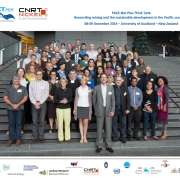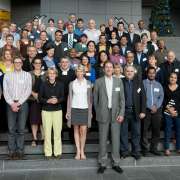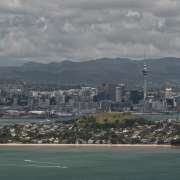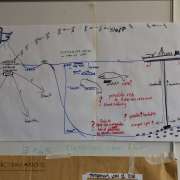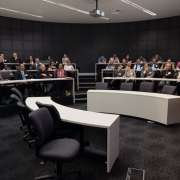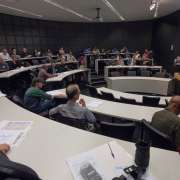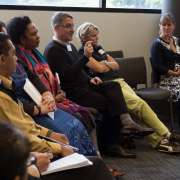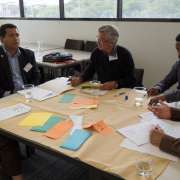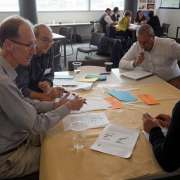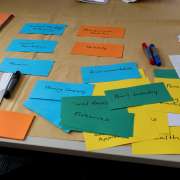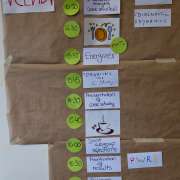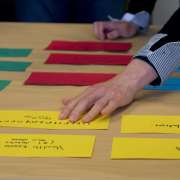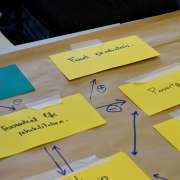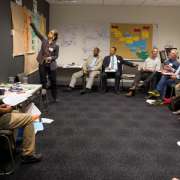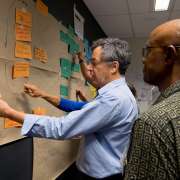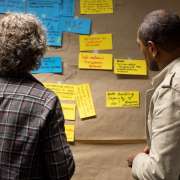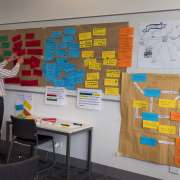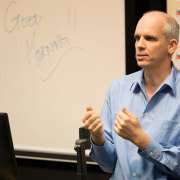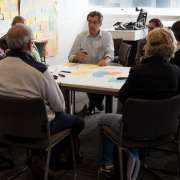Main menu
Reconciling mining and sustainable development in Pacific countries
The Pacific region represents an area of strategic importance for the European Union and is of critical importance for global sustainability. The South Pacific hosts a large percentage of the global biodiversity, innumerable cultures and languages as well as huge quantities of marine livestock, which spread across more than 33 million km2. Rising sea levels, pollution, social and cultural changes are putting all of this at risk, with potential impacts also being felt in Europe. The Pacific-Europe Network for Science, Technology and Innovation (PACE-Net Plus) supports the EU-Pacific policy dialogue and cooperation for addressing a number of major societal challenges: health, food and nutrition security, climate change and the environment. It seeks to promote the implementation of joint activities, support innovation, and strengthen Pacific-EU research cooperation partnerships.
During the PACE-Net Plus Think Tank on Mining and the Environment that will take place on 8-9 December 2014 in Auckland, selected participants from Europe and the South Pacific will identify priority areas for future research cooperation to address the challenges of reconciling mining industry (both terrestrial and seabed mining) and sustainable development in the Pacific countries. Three sub-topics will be discussed in interactive sessions during which invited experts will identify funding options and potential partner institutions. The participants will provide recommendations that will feed into the PACE-Net Plus bi-regional platform for policy dialogue that will follow on 10-11 December 2014 at the same location.
Sub-topic 1: Enhancing environmental consideration in mining while answering societal needs

The creation of knowledge and efficient skill base able to drive mining industry and economic prosperity in a way that fosters harmonious development of hosting areas, is of growing importance in many Pacific countries. Diverse topics have to be addressed to ensure that mining is not going to jeopardize the pillars of sustainable development like access to natural resources, preservation of community livelihoods, other community activities development and social and economical equity. The think tank will explore how scientific knowledge, technologies, capacities and practices, policies and regulations may be improved and may open up innovative ways regarding mining project planning and mining activities management, in the overall objective to preserve biodiversity, natural resources integrity and ecological services for current and next generations.
Sub-topic 2: Increasing knowledge on deep-sea mining environmental and social impacts

Deep-sea mineral deposits within territorial waters and EEZ of a number of Pacific Nations are recognized by local governments as a potential source of revenue able to strongly fasten the economic development of their country. Legitimate questions about the potential effects of that emerging industry are lacking response from such recent activity. The potential environmental impacts (effects on biodiversity, fisheries resources, nuisances and pollutions) as well as social effects of deep-sea mining are not documented enough or at inadequate scale. This think tank will contribute to identify the knowledge gaps to fill to enable efficient decision-making process in the Pacific countries vis-a-vis the development of deep-sea mining. There is room for improvement of knowledge that could guide informed decisions aiming to ensure an equitable share between environmental and social or societal costs and benefits for private companies, local government and communities.
Sub-topic 3: Mining industry and corporate social responsibility as a vector of societal innovation

Mining activities lead deep social and environmental changes in the hosting areas. The projects acceptability and re-interpretations by communities is highly dependant on the mechanisms of disclosure, consultation and integration of people in the decision-making processes. It is of the utmost importance to take into account how local populations perceived the risk and uncertainty induced by a potential mining project. Changes operated into affected societies, as regards social arenas as well as relation to land and environment, strategies put in place by communities to cope with industrial activity, local capacities to share economic opportunities and benefits, relationships between communities and mining companies, are all in need of improvement and may be source of innovative approaches. The long mining history in some Pacific countries (NC, Fiji, PNG), and the more recent or potential development of the sector in other countries (Vanuatu, Salomon islands), as well as the lessons learned from dramatic examples of failed development (Nauru) or environmental disasters (Ok Tedi in PNG) open the opportunity to consider a regional specificity and to learn from past experiences, successes and mistakes, to guide the development of the mining sector in the Pacific region. The think tank will discuss ways of identifying and analysing such societal innovations as well as the need to promote policies and best-practices to support a better consideration of needs, well-being and harmonious development of local communities, respecting local lifeworlds and projects.
Think Tank objectives
The Auckland Think Tank has long-term, medium-term, and short-term objectives. The recommendations of the three think tanks will feed into the adjoining bi-regional policy dialogue, which seeks to enhance scientific and technological cooperation at decision-maker level. The recommendations will:
- Define and update Science, Technology and Innovation (STI) priorities in the area: future EU-Pacific cooperation, recommendations to policy makers, and identification of innovation niches;
- Define joint initiatives such as calls for research proposals, exchange of knowledge between the Pacific and EU, programming work (potential synergies, use of existing programmes); and
- Define joint activities such as summer schools, twining of labs, and designing projects.
Outcomes
With this Think Tank in Auckland we hope to initiate or feed into a bi-regional and operational community of work and practice in the field of Mining and Environment. The PACE-Net Plus project considers itself a facilitator of this community. All participants will thus be invited to participate fully in the two days conference as part of an individual sub-think tank, the plenary sessions, and to become an integrative part of the project community.
|
Dr. France Bailly CNRT Nickel & its Environment 101 Promenade Roger Laroque BP 18235 – 988457 Noumea Cedex (New Caledonia) Phone: +687 28 68 72 Mobile: +687 75 44 80 e-mail: france.bailly@cnrt.nc |
Prof. Jean-François Marini PACE-Net Plus coordinator IRD, 101 Promenade Roger Laroque BP A5 – 98848 Noumea (New Caledonia) Phone: +687 26 07 47 e-mail: jean-francois.marini@ird.fr |
Reconciling mining and sustainable development in Pacific countries



